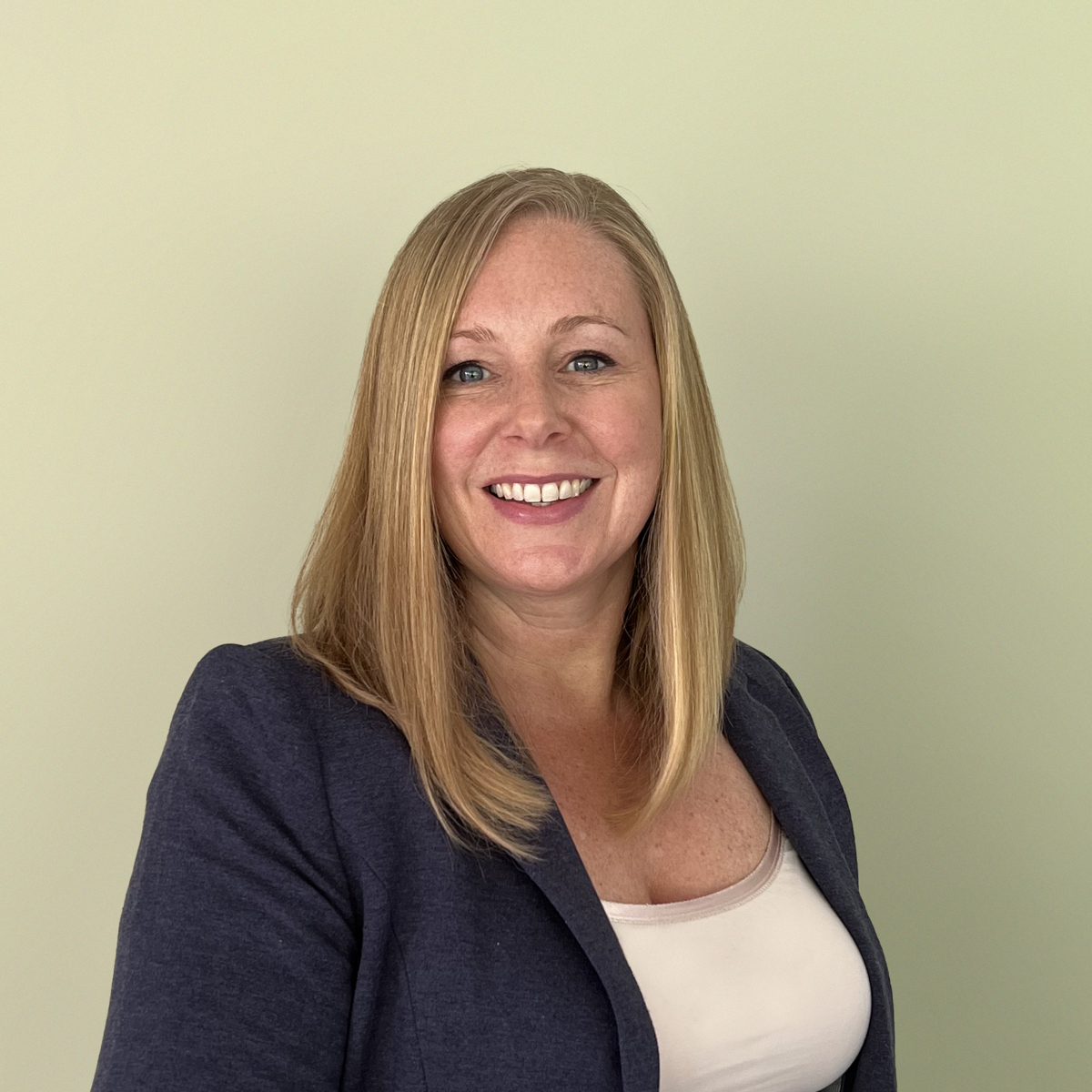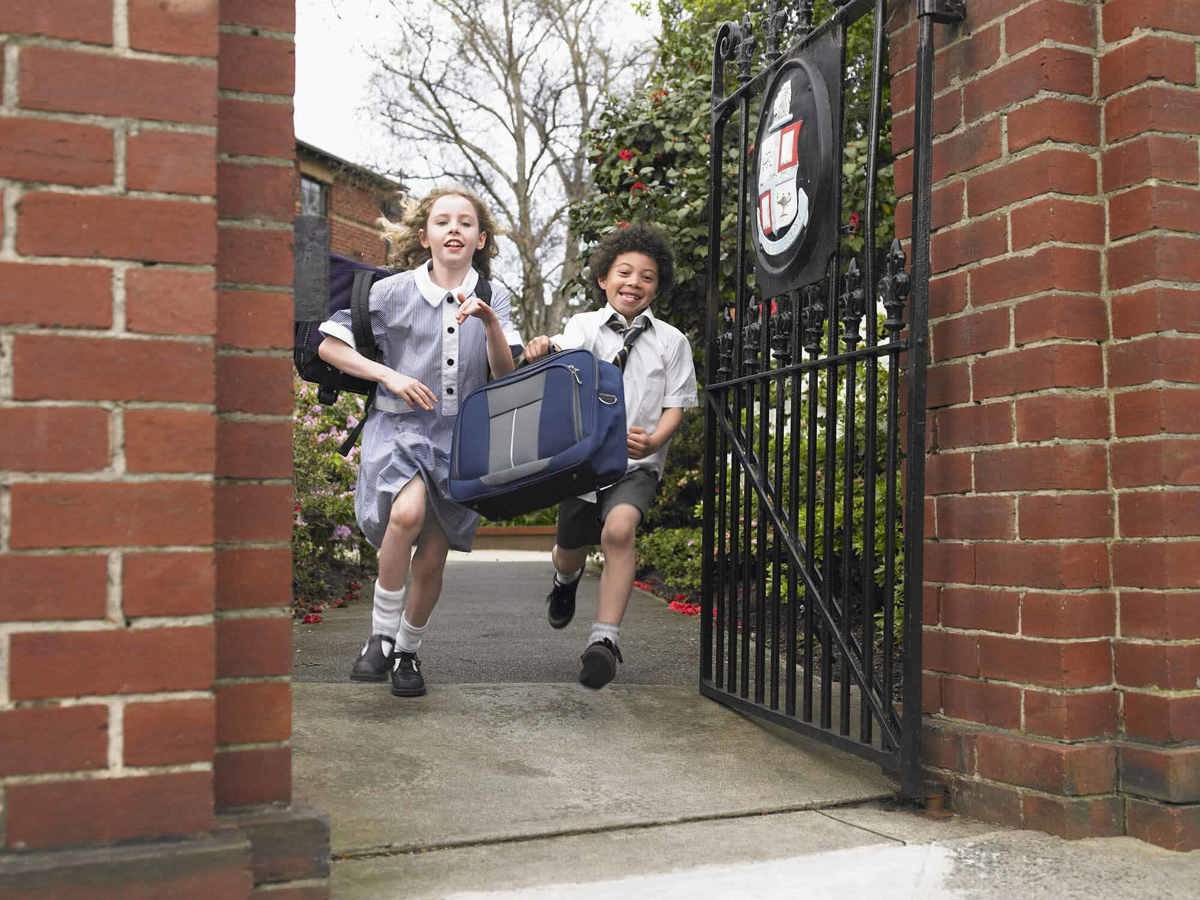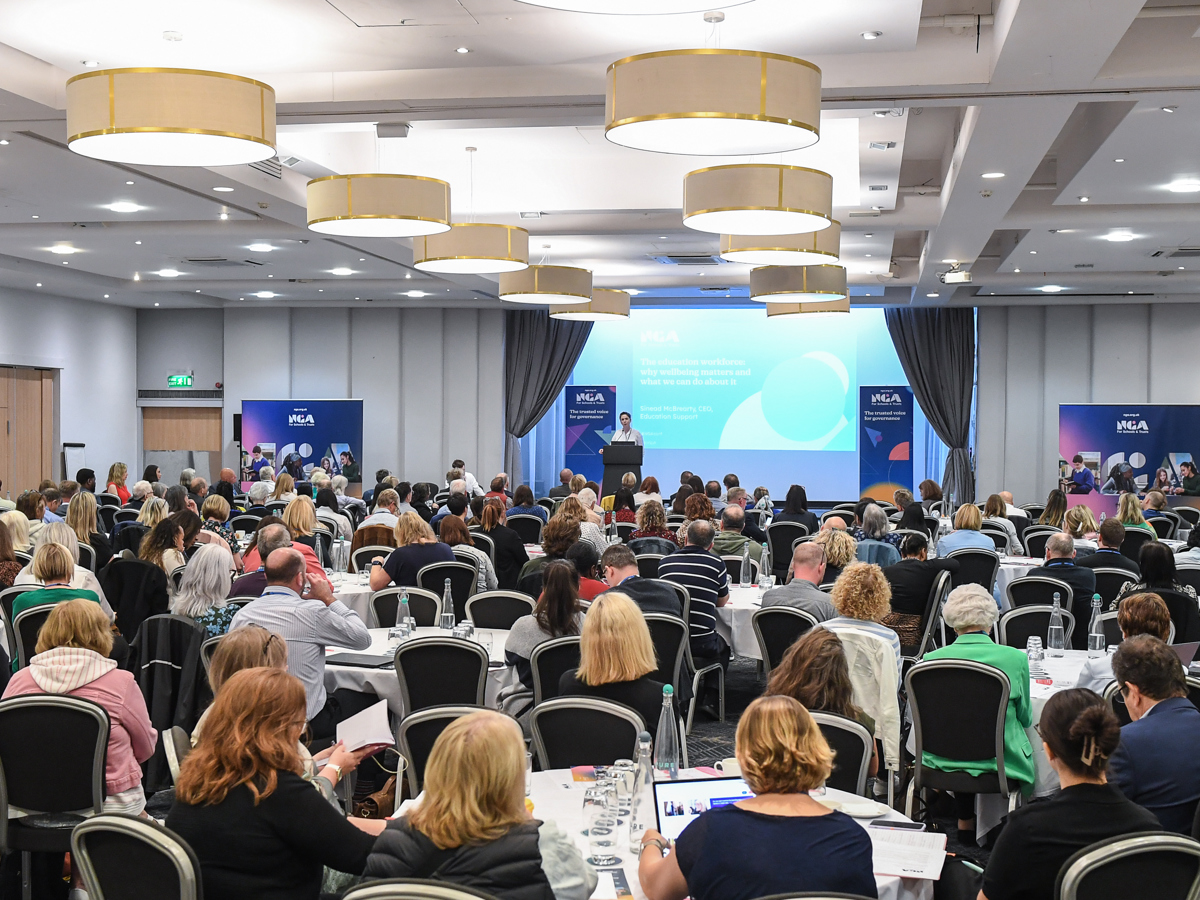Emma Balchin’s 2025 Annual Address: Full Transcript on Ofsted Reform, SEND, Workforce Challenges and the Future
On 20 November 2025, NGA Chief Executive Emma Balchin delivered her annual address at our National Conference and AGM, held at the Schools & Academies Show at the NEC in Birmingham. Speaking to governors, trustees and leaders from across the country, Emma reflected on a year of significant change for the sector, the collective responsibilities we hold, and the progress made through strong, values-driven governance.

Below is the full transcript of NGA Chief Executive Emma Balchin's 2025 annual address at our National Conference and AGM, held at the Schools & Academies Show at the NEC in Birmingham.
It’s a huge responsibility governing our schools and trusts, but it’s also a tremendous privilege. It gives us a real opportunity to shape the culture of our schools and trusts, and to set our ambitions high so that our system reflects the values we espouse. We are guardians of equity and champions for every child, and it feels as though we are holding stewardship for future generations who haven’t yet come through the doors of the schools and trusts we serve.
As I embarked on my second year as NGA’s Chief Executive, I felt the weight of that responsibility more keenly than ever. But, as with any weight, carrying it collectively makes it much easier to bear. And that’s what we do, not only on our boards, through our shared responsibilities as governors, but at events like this, where every governor, trustee, and leader in this room shares the responsibility and aspirations of children, families, and communities across the country. It’s important that we hold that close as we move forward in these fairly challenging times.
What does it mean to truly embrace that responsibility? For me, it means being here, raising the profile of governance, answering tough questions on public stages, sometimes shoehorning governance into every panel that will have me. For you, in your governing roles, it means being curious, asking the hard questions, challenging yourselves and each other, and never settling for “good enough.”
It means recognising that our actions, or inactions, have real consequences for real people: families, school staff, and the wider community. Ultimately, this work impacts the whole country, the future of the economy and the future workforce. That may sound grand, but it reminds me of the anthropologist Margaret Mead’s quote: “Never doubt that a small group of thoughtful, committed citizens can change the world; indeed, it’s the only thing that ever has.” Whatever each of us does, however small it may feel, collectively we are shifting and changing the culture in education.
Reflecting on the past year, the progress we’ve made and the challenges faced, there are important achievements to celebrate. We’ve seen the removal of one-word Ofsted judgments. The STRB pay awards were better than expected, as was the spending review, even if not better than needed. But it’s also crucial to take stock of where we are, the vision we hold for the future, and how we can achieve it as a community committed to ensuring children and young people receive the best educational experience possible.
This year, we focused our influencing work on advocating for governance as the first line of accountability and on securing recognition of the important employer responsibilities held by boards. We gained a seat at the Government’s “Education Together” stakeholder working groups, enabling us to work with partners across the sector to inform core areas of the Department’s programme. This, in turn, informed our own work, particularly around SEND, workforce, and accountability.
Accountability
Accountability has always been a contentious issue in education. While it can drive improvement, too often schools experience it as something done to them: a top-down process focused on compliance for its own sake, with metrics that sometimes drive the wrong behaviours and the ever-present pressure of Ofsted.
We’ve embraced the concept outlined in the Forum Strategy paper, coined as “pure accountability.” It’s a model that empowers stakeholders to provide feedback and insights that shape strategic direction and ongoing improvement. Pure accountability helps us measure school success beyond traditional metrics, creating meaningful measures shaped by pupils, staff, and community context.
Reframing accountability is part of influencing what we hope becomes a wider cultural shift in Ofsted inspection, moving away from sweeping judgments that condemn schools, towards supporting them to make progress: striving, adapting, and learning. Environments where imperfection is supported, not punished, are better for all children, particularly those with additional needs.
We raised many of our members’ concerns during Ofsted’s consultation, and we’re pleased that several have been heard and acted upon, including minimising workload, improving consistency with HMI leading each inspection, and giving governance greater prominence in the new inspection framework, the most we’ve seen since before 2019.
More than 500 governors and trustees joined us for our recent Q&A with His Majesty’s Chief Inspector, Sir Martyn Oliver, an invaluable opportunity to dispel myths and hear directly about reforms. We’ve been clear that changes to Ofsted do not create new requirements for governing boards, and that the core principles of good governance remain unchanged. The use of some of our criteria to define “expected” and “exceeding” standards is a testament to our advocacy, and to your voices.
We will continue listening to your experiences as the new inspection framework rolls out, so we can feed back effectively and help shape a system that raises standards rather than perpetuating a culture of fear.
SEND and Inclusion
SEND and inclusion remain one of our biggest areas of work. We have long advocated for widening the lens on disadvantage, campaigning for a more nuanced understanding of the barriers children may face, beyond pupil premium status or SEND diagnoses.
You’ve told us that our series of toolkits on poverty, vulnerability, mental health, wellbeing, ethnicity, and SEND has informed board discussions and supported more inclusive practices. We’ve seen both Ofsted and the DfE adopt approaches more aligned with ours and we continue to bring these principles to the DfE’s SEND working groups.
It’s time to move beyond lamenting a “broken SEND system.” While the challenges are real, we need to find solutions, solutions that improve pupil outcomes, reassure parents, avoid adding pressure to the workforce, and work within increasingly tight budgets and stretched public services.
Governors and trustees have a unique vantage point. You hold leaders to account while seeing the daily realities: rising numbers of children with complex needs, workforce shortages, and financial strain. These perspectives shape policy, and our new SEND Advisory Group is already providing rich insight across every type of school and trust.
We know the link between educational disadvantage and poverty is well documented. The ONS highlights educational achievement as the most influential factor affecting future work prospects and, therefore, the risk of poverty. Our annual governance survey shows around 60% of schools are now providing increasing support to families facing hardship. Analysis from CPAG shows that scrapping the two-child limit would be one of the most cost-effective ways to lift children out of poverty, which is why we joined more than 100 organisations in urging the government to abolish it. We hope the upcoming budget reflects this.
Another success has been our work shaping the DfE’s guidance on school uniform. We advocated for moving away from punitive measures that result in children missing learning. Uniform policies must recognise individual needs. A personal example: my own daughter has alopecia and sometimes has no eyelashes. At 14, leaving the house without them would be enormously difficult. Uniform policies must accommodate individual circumstances. The new guidance is clear: pupils must not miss learning because they lack the “right” uniform. In the current economic climate, that message matters.
Workforce
Inclusion and pupil wellbeing cannot be achieved without a healthy workplace culture. Concerns around staff workload and wellbeing are rising, and more of you are identifying them as top challenges in your schools and trusts. Accountability pressures leave leaders isolated, and this week we published our “Three Strands of Leadership” report with ASCL and ISBL, exploring how governance, business leadership, and school leadership can work together more effectively. Shared responsibility reduces isolation, balances workload, and enables leaders to focus where they add most value.
This principle of collaboration applies at system level too. Mature MATs and informal networks alike show how schools can share expertise, meet local needs, and develop outward-looking cultures that reflect evolving community needs.
Schools have always offered belonging to their communities. Early MAT evolution raised concerns about governance becoming detached from classroom realities, and we have consistently emphasised the need for meaningful school-level governance. Community-anchored volunteers bring vital insight, passion, and moral purpose. Today, 99% of MATs operate with some form of local governance, a substantial rise from 88% in 2021.
But it’s not enough merely to have local governance; it must be meaningful, structured, and have real agency. Many trusts now use our frameworks at local level, focusing on SEND, safeguarding, and stakeholder engagement.
Local governance reduces the distance between decision-makers and stakeholders, especially important given rising complaints and strained relationships between schools and families. Our recent survey identified effective engagement and communication with parents as the number one action to reduce complaints.
We’ve made clear recommendations to the DfE on improving complaints processes, including training staff to work with parents and better coordination between external agencies, such as Ofsted, when parents raise concerns.
Looking Ahead
There is always more to do. We’ve seen the beginnings of significant reform and are awaiting further developments, including the upcoming white paper and the Children’s Wellbeing and Schools Bill. We’ve been able to feed directly into these processes because of the evidence and insight you provide.
Our priorities for the coming year include workforce, finance, funding, and school improvement, with SEND woven throughout. And, as NGA celebrates its 20th anniversary, we will reflect on how far both the organisation and the sector have come, while continuing to make the case for the impact of governance.
We’re also committed to making governance easier, faster, and smarter. This week, we are launching NGA Assist, which provides reliable answers to governance questions in seconds and helps draft agendas, papers, and policies using our resources. Our extended board-management solution will support document sharing, action tracking, and access to NGA resources, ensuring compliance and efficiency. Our e-learning platform is also being refreshed, making it easier to access and improving tools for governance professionals to allocate learning.
We want to build on our progress, growing and connecting our community, learning from one another, and improving the lives of children and young people.
Finally, thank you. Thank you for your commitment, your ideas, and your unwavering support. Together, as thoughtful, committed citizens, we are changing our corner of the world.

Emma Balchin
Chief Executive
Emma has over 25 years of experience in education, leadership and school improvement and in leading professional development services. Emma has also governed and chaired across maintained schools, academy trusts and local academy committees.

















































